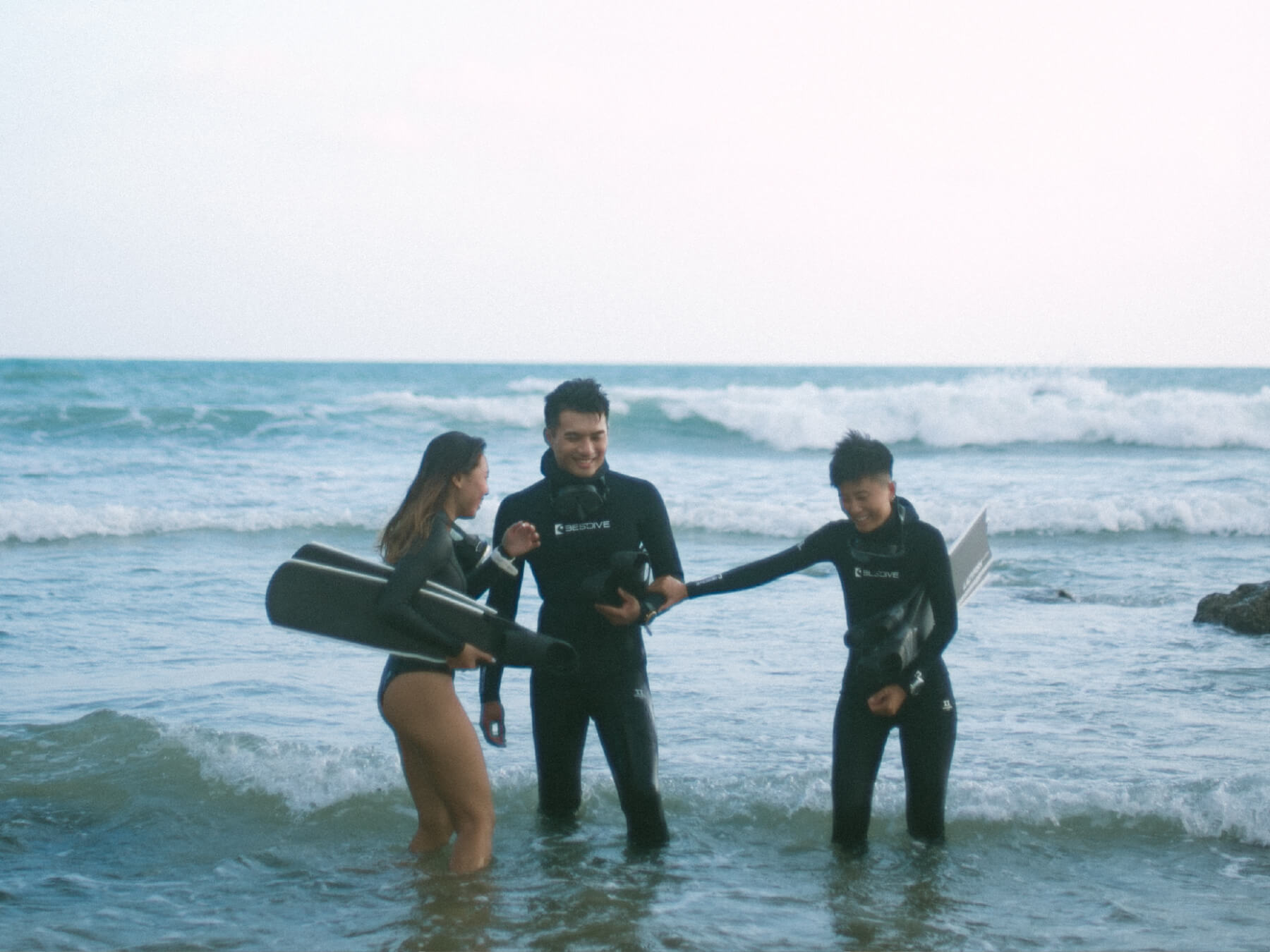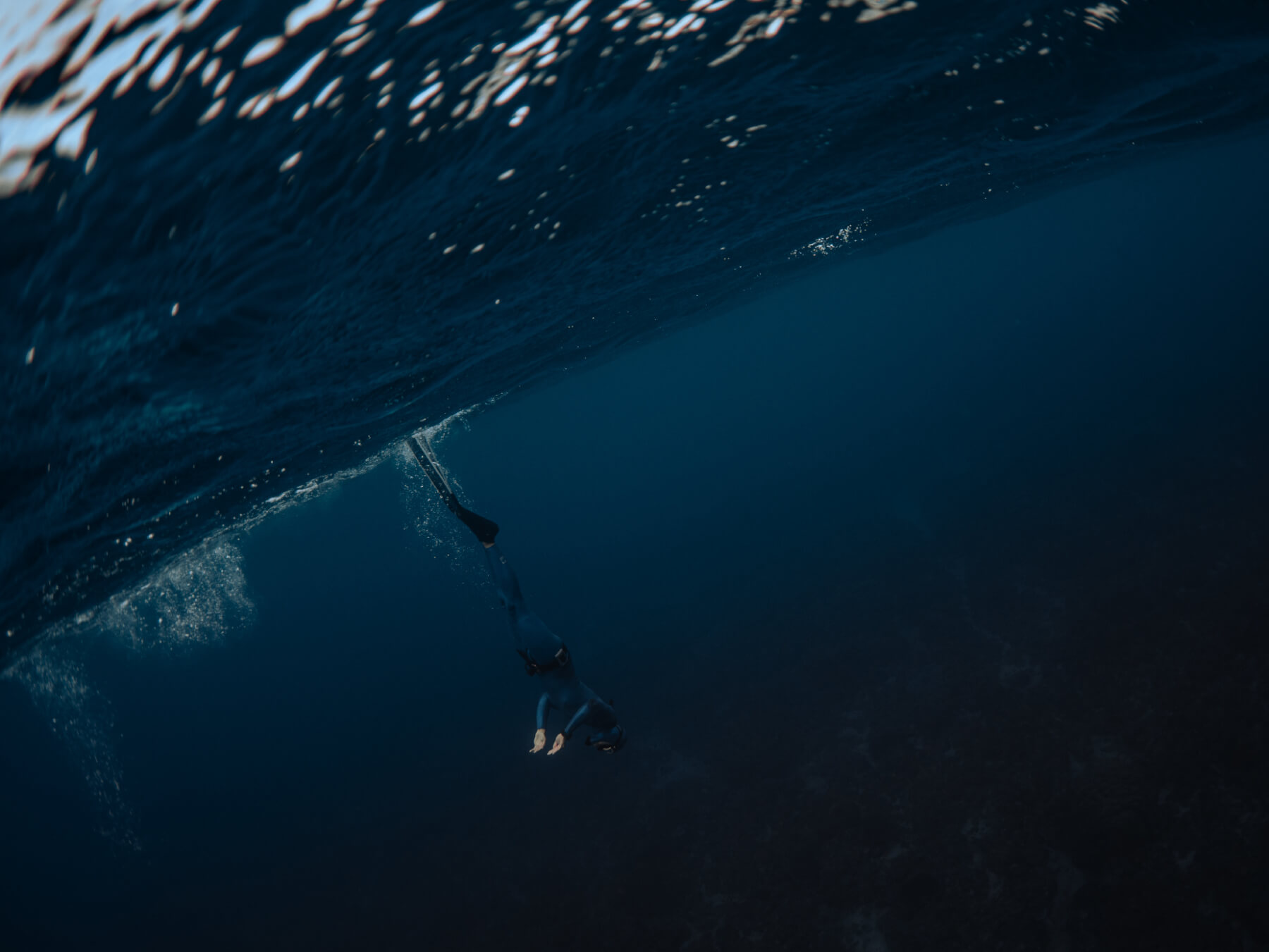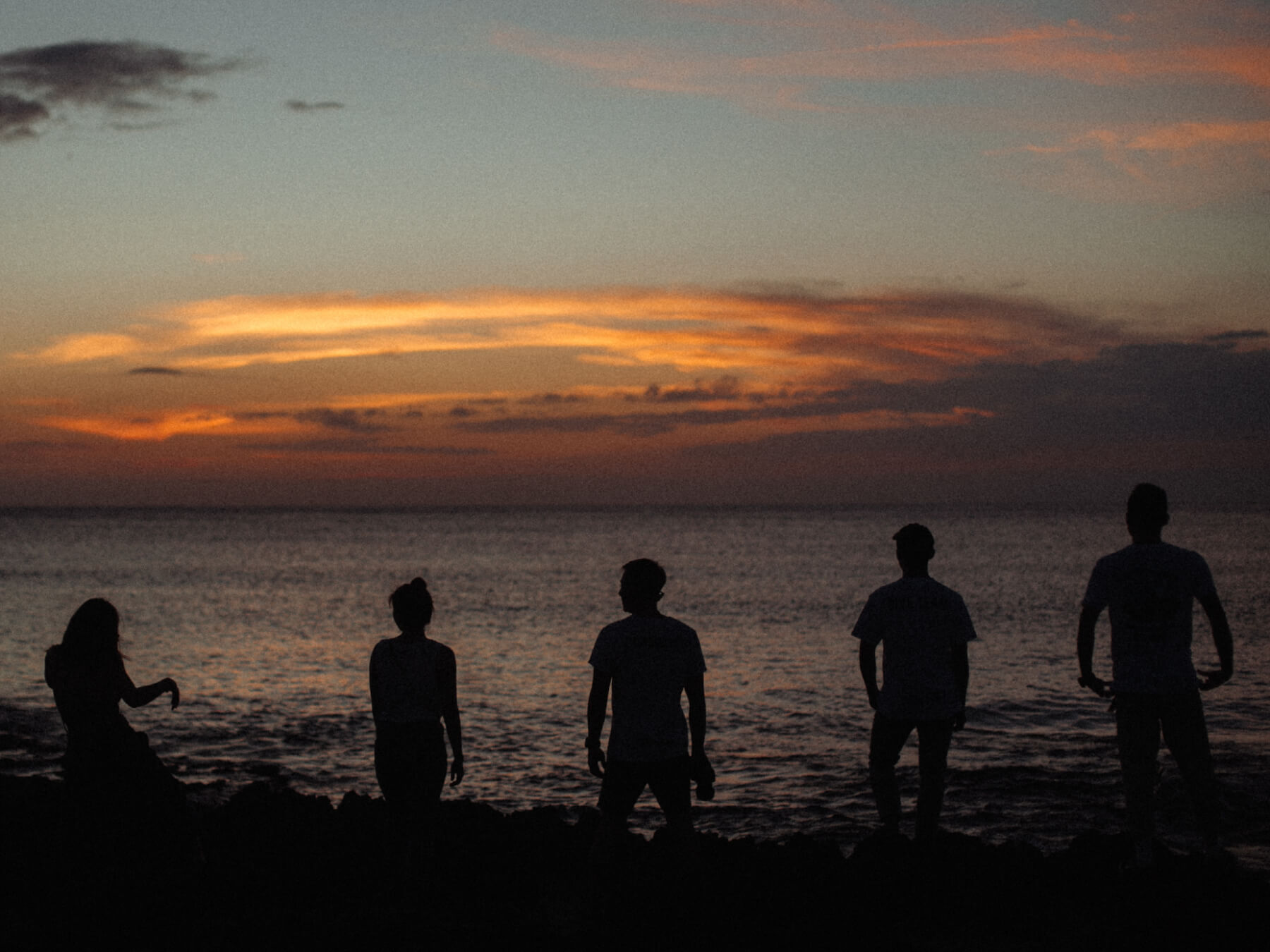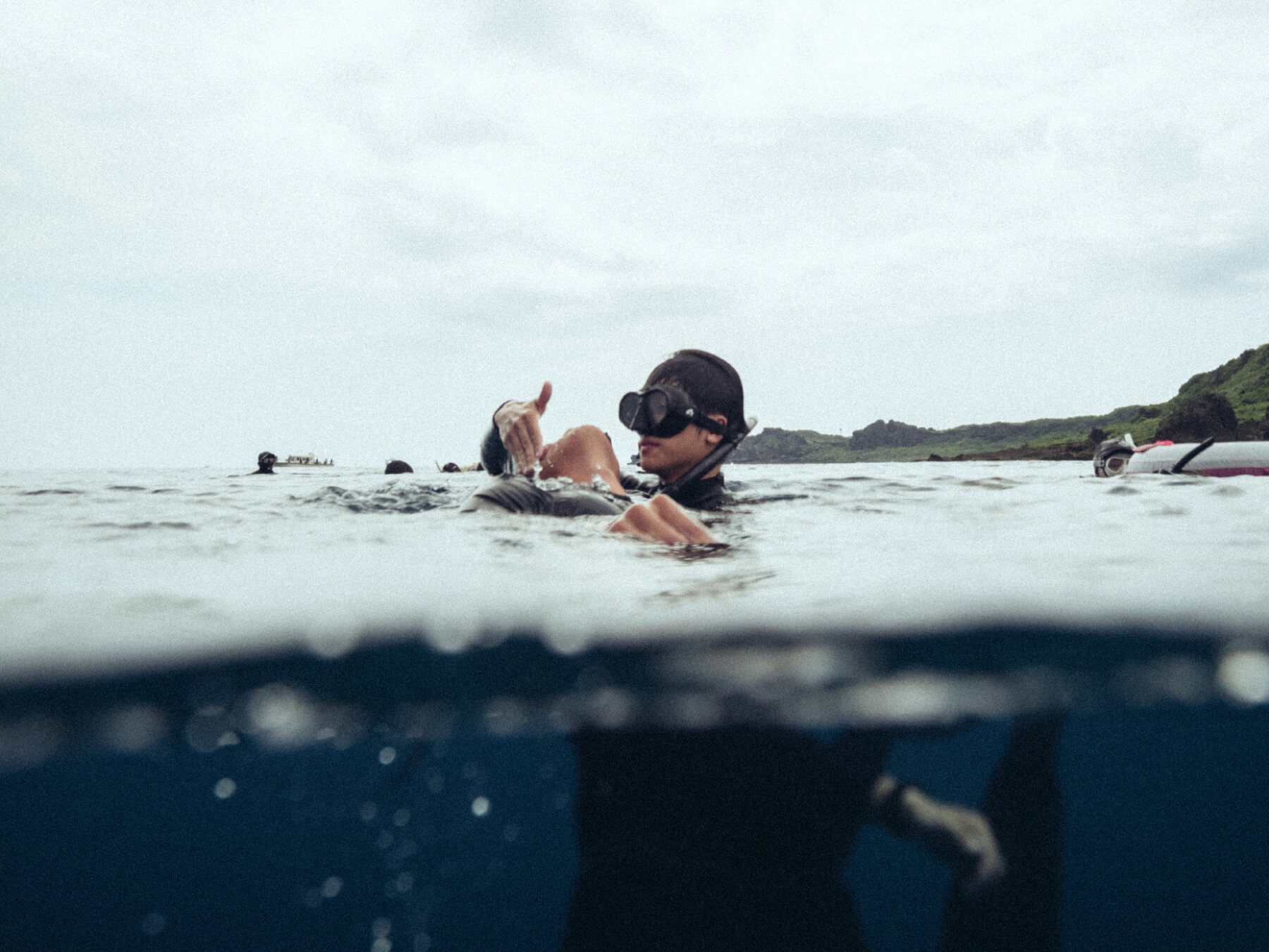

How long can a single breath last?
In this course, you will build the foundation of freediving theory and techniques,
allowing you to safely freedive to depths of up to 20 meters
under the guidance of an instructor.
The Freediver Course
is the entry-level certification course for freediving.

At BTS, our small-class teaching approach ensures that every student can learn comfortably without worrying about falling behind.
We offer courses on both weekdays and weekends,
and even a single participant can register and join.
At BTS, you don’t have to worry about being alone.
Even outside of class hours,
our instructors are happy to accompany you on a culinary tour of Hengchun,
explore hidden local attractions during course breaks,
and immerse yourself in the local lifestyle of BTS.

If you want to deeply experience tranquility and connect with yourself,
exploring below the surface between two breaths, this course is for you.
Once you begin to experience the sensation of holding your breath,
you’ll understand why the underwater world is called "inner space."
It’s quiet, leaving you feeling small, with only yourself.
Underwater, you not only experience a completely different perspective from land,
but also enjoy the freedom of weightlessness.
During a dive, no communication apps can reach you.
In this fast-paced, socially connected era,
it offers a brief escape from the noise of multimedia.
Focus on each heartbeat in the moment.
You’ll discover that not breathing, more than breathing,
allows you to feel the intensity of life.
| Minimum age requirement | 12 years old (Parental or guardian signature required if under 18) |
| Maximum age limit | None |
Before participating in diving activities, a health declaration form must be completed.
As long as you meet the conditions listed in the form and are physically and mentally healthy,
you can join the activity.
If any items on the form are marked "yes," consult your physician,
and with their approval, you can participate in the activity!
| Six units of diving theory | After registration, you will be given access to online learning materials. You can use your mobile phone, tablet, or computer to preview the course in advance. During the course, there will be a half-day theory session, where the instructor will guide you through each unit's knowledge review, ensuring every student fully understands the essential theoretical concepts. |
| Comprehensive breathing technique training | How can a single breath last so long? It all depends on "relaxation." We will guide you step by step, using a more scientific approach, to master proper breathing techniques. |
| Confined water training | Starting in shallow water, you’ll practice static apnea and dynamic apnea, Next, you’ll move to deep water practice, |
| Open water training | Suitable dive sites will be selected based on the season, Constant weight descent During practice, don’t forget that adorable fish and stunning corals are all around you. |

| Course Fee | NT16,000 per person |
| Fee Includes | Use of full diving equipment during the course Pool entry fee Water insurance fees Online course materials International certification processing fees |
| Course Location | Hengchun Peninsula |
| Course Schedule | Regular classes start every Tuesday and Friday Non-regular start times can be inquired via private message |
| Course Duration | At least 18 hours, recommended to be completed in three days |
Enjoy discounted accommodation at the BTS Guesthouse during the course.
| Day ❶ | |
| 07:30-08:00 | Filling out basic documents |
| 08:10-10:00 | Breathing technique practice |
| 10:10-12:00 | Confined water training (Part 1) |
| 12:00-13:30 | Lunch break |
| 13:30-15:30 | Confined water training (Part 2) |
| 15:50-17:00 | Knowledge development |
| Day ❷ | |
| 07:30-08:30 | Stretching and preparation |
| 09:10-10:20 | Confined water training (Part 3) |
| 10:50-12:00 | Confined water training (Part 4) |
| 12:00-13:30 | Lunch break |
| 13:30-17:30 | Knowledge development |
| 17:30-18:30 | Written exam |
| Day ❸ | |
| 07:30-08:30 | Stretching and preparation |
| 09:10-10:20 | Open water training (Part 1) |
| 10:50-12:00 | Open water training (Part 2) |
| 12:00-14:30 | Lunch break |
| 14:30-17:00 | Dive log and certification processing |
The schedule is for reference only.
Actual arrangements may be adjusted flexibly due to weather or other factors.